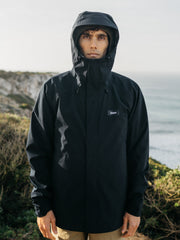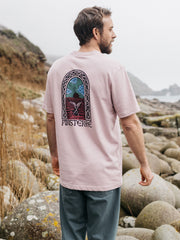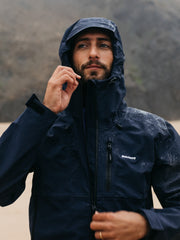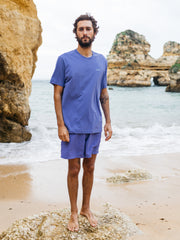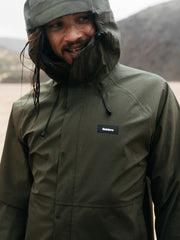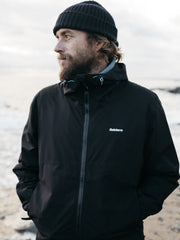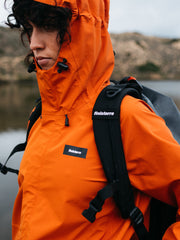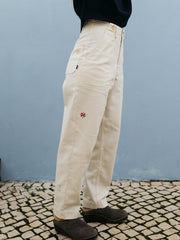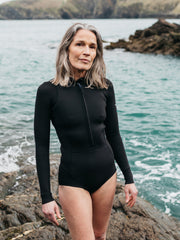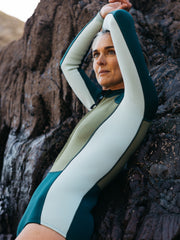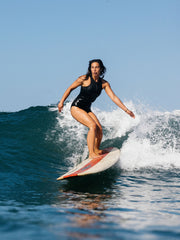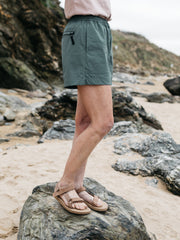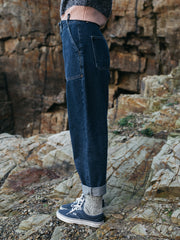Surfing Through Depression
04.09.21
4 min read
It’s been a tough and long winter marred by the chaos of Covid, the claustrophobia of home-schooling and bewilderment of Brexit. No doubt we’ve all experienced new levels of depression and anxiety. But as surfers we like depressions, particularly deep depressions, and those low pressure systems that blow strong winds and generate swell. On land and in everyday life, however, where a different kind of depression descends upon us, it’s another story. In the place that American novelist William Styron called ‘darkness visible’, it is so easy to feel chronically low, heavy-hearted and miserable. For some, all sense of self dissolves and a big black hole opens up. When you experience extreme depression, your nerves are exposed and life is not just unbearable but meaningless. Many turn to doctors, whose default treatment, more often than not, has been to prescribe antidepressants.
So many prescriptions have been given that, in some countries, traces of antidepressants are now present in the groundwater. Some forms of depression and anxiety can be explained as a cultural effect. Life for many is so manic, up-tempo, and expectations so high for success and impact, that it is inevitable that many will be depressed. We simply cannot reach the heights the bar of ‘life satisfaction’ is set at. This calls for a mass education, a public mindfulness, to set the bar lower. We must relax more, open up more space for doing things that are not necessarily ‘achieving’ anything, like noticing a butterfly or talking to a stranger. And there is a recent and welcome trend to treat depression with alternatives to pharmaceuticals, including the ‘green gym’ (walking, running, cycling, fresh air) and the ‘blue gym’ (swimming, surfing, saltwater, freshwater). When mindfulness is added to the equation, the results can be dramatic.
Lifetime Prescription to the Blue Gym
In the playground of the blue gym, surfing as therapy is tried and tested. What better medicine than to paddle into a diesel-green set and launch down the rain-slicked face of one of the best waves you ever tasted, salt stinging your eyes? A big, swooping bottom turn and you glance up – overhead and lip looming, the fringe of the curl throwing out foam; finding a sweet spot, you hurtle back down faster than ever before, slice a clean cutback, readjust and kick out in the shorebreak to an orchestra of skylarks.
As you spend time in breaking waves, there are increases in serotonin, oxytocin and dopamine levels – all good stuff for feeling in tune with the world. Surfing is also good for the heart, as both a love-like passion and heartbeat raiser. It exercises the big fist of muscle and its many connecting vessels, elevating adrenaline, tuning reflexes, and toning the mind to create calm and acceptance.
As you get active in the blue gym (and as you release all those endorphins), practising mindfulness brings added benefits. A growing body of evidence shows that learning mindfulness – defined as training the mind to focus on the present moment and to maintain attention, while also being aware of sensations and your immediate surroundings – can reduce anxiety.
This happens when the mind is encouraged to stop jumping ahead into thoughts about the future, or ruminating compulsively about the past to the extent that emotions like worry, fear and anger cloud the present. When morbid thoughts dominate, that cloud is filled with stories of our own making, and we lose connection with reality as it really is.
When we enter the blue gym and get moving, when we relax and get into activities that are simply fun, that are not about achieving anything – such as noticing the pulsing bell of a jellyfish or wiping out on a small wave – then we are on the path to mindful happiness and a life lived beyond the confines of our worry-cloud.
Storm to Storm: Merging & Melancholy
Historically, ‘depression’ was seen differently than it is now. In western medieval and Renaissance societies, there was a personality type called the melancholic. This person was often isolated, but they were also seen as reflective and intellectual. Melancholia was thought of as grey and leaden, but it was also the sign of a deep thinker, someone heavy with wisdom. It was not looked upon as a negative state. The melancholic brooded, mulled things over, recognised that they were a tiny, lonely figure on a vast ocean canvas, the heavy weather looming above, about to be tipped whole into the sea’s open chest. Shakespeare, whose most famous melancholic character was Hamlet, described melancholia as contemplative.
Surfing can become more than riding the wave. It can be experienced as immersion in big nature, in the aching silence of the sea suddenly punctuated by a cluster of breaking waves – a depression followed by urgent, perhaps anxious activity. Then, a big space opens up, and again there is deep calm. This time, maybe, it is a melancholic calm, but it is contemplative, not helpless, not powerless: it is not depression. If you indwell this experience, you allow your moods to be vanquished by the bigger moods of sea and sky.
The equation is straightforward (kind of): low pressure = surf = physical exercise + mindfulness = better health and positive attention to the environment. Therefore depression becomes melancholia or thoughtful existence, which means less need for antidepressants = less trace of antidepressants in the water = the green and blue gyms live forever.
The point is to spend a little bit more time looking and listening before doing. Maybe this is not just about being but about what the philosopher Martin Heidegger called ‘becoming’ - a being in time, an unfolding sense of what he further called ‘dwelling’. When we dwell, we inhabit. I try to notice how some things only come with certain tides and cluster after certain winds, watching where the cormorants dive for fish: it always seems to be the spot where the wave energy is highest.
After a recent surf I noticed the fierce spring tide had left the beach raked with salt, and I walked in a big arc across the sand, before heading home, up the cliff. This is the gift of inhabiting the pulse of places. Nature creates such different pictures to experience moment by moment. After the surf you can reflect the changing moods of those waves, light bouncing off the drumhead of a calm mind; the sea as your familiar.
Sam's latest book, Mindful Thoughts for Surfers, explores how meditative a life on the surfboard can be through 25 insightful musings that will inspire beginners and experts alike. Find out more and add it to your library through the link below.


